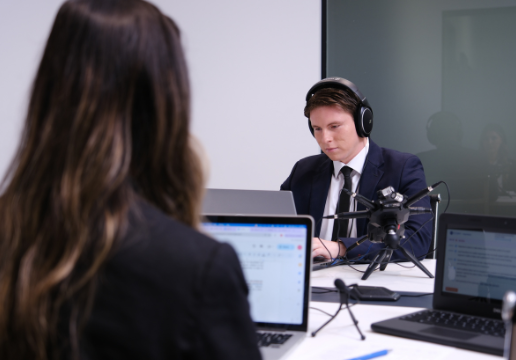By Lee Bursten, CRR, RMR
All court reporting students must practice in order to get through reporting school. Passing successively faster speed tests requires hours of daily speed and accuracy practice. But what happens after they graduate and begin working? After years of putting in the enormous effort of practicing for speed tests, why would a working court reporter want to continue practicing?
One reason is to gain local or national certifications. Certifications from the National Court Reporters Association, such as the Registered Professional Reporter (RPR), Registered Merit Reporter (RMR), and Certified Realtime Reporter (CRR) require passing speed and accuracy tests, and most reporters who take these tests recognize the importance of practicing for them starting weeks or months in advance of test day.
But there is another reason to practice – simply to maintain and improve our skills so that we can perform excellently on the job.
For most of my 24-year career, it never would have occurred to me to practice after I graduated from school. I was working – why should I practice?
But a few years ago I realized that I need to shorten my writing, and I also felt that my speed could use a bit of work. I joined Mark Kislingbury’s Magnum Steno Club (which entails a $29.95 a month pay-as-you-go subscription). Mark makes a new 10- to 20-minute dictation video every weekday, including holidays, which can be played by streaming from his website at any time. Members can access his archive which, since he’s been at it for several years, now contains thousands of dictation videos. Members can also access his library of instructional and motivational videos, which includes a great deal of material to help reporters write shorter by learning thousands of word and phrase briefs.
The huge insight I learned from Mark was how important it is for working reporters to do daily practice, including both high-speed dictation and practicing briefs. Since joining the Magnum Steno Club, I’ve shortened my writing by about 40% and increased my speed and accuracy so that I could easily pass the CRR and RMR certification tests.
And what a difference it makes on the job! Of course there are still rough spots, but far fewer than I had before I started daily practice. I struggle much less while writing on the job, and spend much less time editing my work. And I feel much more comfortable when a deposition starts – since I’ve practiced at home before coming to the job, I’m already warmed up and ready to go. I usually spend about 15 minutes on speed work and five minutes on brief practice, although I’ll spend more time on briefs on the weekends.
Over the course of my career I’ve met some reporters who have developed an attitude that they are already great reporters, so they don’t need to practice. These kinds of reporters will never admit to writing anything less than perfectly or of needing to check their audio backup because they dropped something.
To my mind, a reporter who is practicing every day and doing their utmost to improve their skills is a better reporter than one who thinks they don’t need to practice. That reporter who is willing to put in the time and effort to self-improve is the same reporter who will go the extra mile to get an accurate spelling or to turn in a complicated job correctly.
I also feel it is psychologically healthy to practice. Now that I practice daily, I certainly feel more comfortable and confident on the job. There’s so much in life that lies outside our control, so having at least one thing that we do have control over – our own skill level – is invaluable.
High-speed dictation and briefs practice isn’t easy. In fact, it can be quite challenging. But challenging yourself is necessary in order to improve your skills. To quote an old English proverb that I heard on one of Mark’s dictations: “A smooth sea never made a skillful sailor.”
There’s nothing quite so gratifying as setting a challenge for oneself and then meeting that challenge. It’s the easiest way I know of to feel good about oneself. Now, imagine experiencing that good feeling every day!
So I encourage all working reporters to do daily practice. No matter what your skill level is, no matter what kind of reporting you do, no matter how many years you’ve been reporting, there is always room for improvement, and there are always continued benefits to be had from daily practice.
The Magnum Steno Club is what works best for me, but if it doesn’t work for you, there are plenty of ways to practice. Speed dictation is available from the NCRA and from other vendors on the Internet. You can buy a variable-speed tape recorder, or audio software which allows you to change playback speed, and record CNN or C-SPAN and speed it up so that you’re writing substantially above your comfort zone. The point isn’t to write perfectly but to get your fingers and brain used to high speeds, so that when you write at lower speeds, it sounds slow in comparison.
Shortening our writing by learning many new word and phrase briefs is also important and makes a tremendous difference on the job. Mark’s “Magnum Steno Book” and his instructional videos are a great resource, and you can find briefs for common words and phrases in other books as well and on the Internet.
In sum: I realize it may be hard to find the time in our busy lives, but we do tend to find time for the really important things. I believe daily steno practice is one of the most important things we can do for ourselves and our careers. If you’re not already practicing every day, give it a try and see for yourself!

